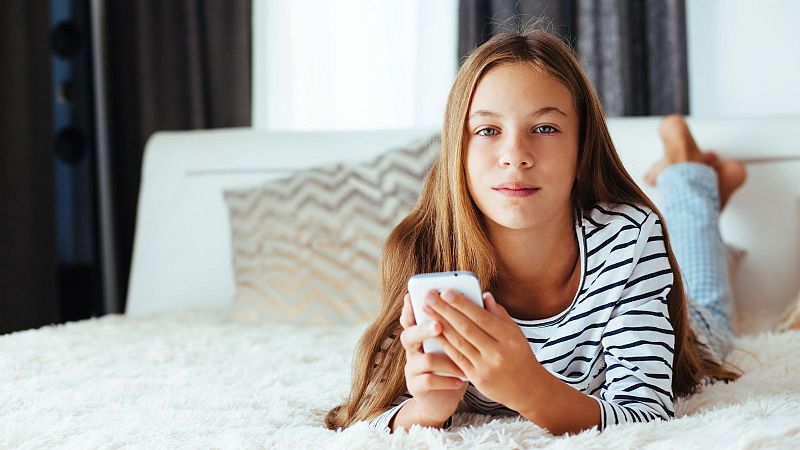
Teenage girls who spend more time on their phones are more likely to sleep badly and have signs of depression, researchers in Sweden found.
The study included 4,810 Swedish students aged 12 to 16. Researchers from the Karolinska Institute monitored their screen time habits, sleep patterns, and symptoms of depression over a one-year period.
Both girls and boys spent three to four hours per day on their devices, above the two- or three-hour limit that Sweden’s public health agency recommends for teenagers.
But at the roughly same level of screen time, teen girls had an average depression score that was twice as high as among boys.
The findings, published in the journal PLOS Global Public Health, confirmed that high screen time leads to sleep “displacement,” meaning people fall asleep ater than they would on the body’s natural schedule.
Among teen girls, screen-driven displacement impacted their sleep quality, how long they slept and their chronotype, or the natural inclination of the body to sleep at a certain time.
Teen girls were also more likely to report symptoms of depression – but this wasn’t the case for boys.
“Our results do suggest that less… screen time seems healthier, in line with previous World Health Organization statements,” the authors said.
If people lowered their screen time, “the high burden of depressive states among young Swedish women, and maybe young men, would likely decrease,” they added.
The findings are in line with previous research that followed 45,000 Norwegian university students, and found a strong relationship between screen time in bed, insomnia symptoms, and shorter sleep duration.
More research needed
But other researchers urged caution and for more studies to be done before jumping to any conclusions.
Notably, the Swedish analysis doesn’t establish that high screen time causes poor sleep and depression – just that they are correlated.
The study has some other limitations. The teenagers reported their own screen time, “a method known for its unreliability,” Chris Ferguson, a professor of psychology at Stetson University in the US who wasn’t involved with the study, said in a statement.
Even so, other scientists said the findings could help make the case for national guidelines on smartphone use on school nights.
Ben Carter, a professor of medical statistics at King’s College London who was not involved with the study, said such guidelines could “empower parents and help adolescents improve their sleep and prevent daytime sleepiness”.
That’s especially important, he said in a statement, because “sleep in the development of adolescents is essential”.







